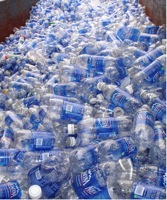Difference between revisions of "Solid"
(Created page with 'File:lighterstill.jpgright|frame ==Etymology== [http://nordan.daynal.org/wiki/index.php?title=English#ca._1100-1500_.09THE_MIDDLE_ENGLISH_PER...') |
m (Text replacement - "http://" to "https://") |
||
| (One intermediate revision by the same user not shown) | |||
| Line 2: | Line 2: | ||
==Etymology== | ==Etymology== | ||
| − | [ | + | [https://nordan.daynal.org/wiki/index.php?title=English#ca._1100-1500_.09THE_MIDDLE_ENGLISH_PERIOD Middle English] solide, from Middle French, from [[Latin]] solidus; akin to [[Greek]] holos whole |
| − | *Date: [ | + | *Date: [https://www.wikipedia.org/wiki/14th_Century 14th century] |
==Definitions== | ==Definitions== | ||
*1 a : being without an internal cavity <a solid ball of rubber> | *1 a : being without an internal cavity <a solid ball of rubber> | ||
| Line 24: | Line 24: | ||
'''Solid''' is one of the major [[states]] of [[matter]]. It is characterized by [[structural]] rigidity and [[resistance]] to [[changes]] of shape or [[volume]]. Unlike a [[liquid]], a solid object does not [[flow]] to take on the shape of its container, nor does it expand to fill the entire volume available to it like a [[gas]] does. The [[atoms]] in a solid are tightly bound to each other, either in a regular [[geometric]] [[lattice]] ([[Crystal|crystalline]] solids, which include metals and ordinary water ice) or irregularly (an amorphous solid such as common window glass). | '''Solid''' is one of the major [[states]] of [[matter]]. It is characterized by [[structural]] rigidity and [[resistance]] to [[changes]] of shape or [[volume]]. Unlike a [[liquid]], a solid object does not [[flow]] to take on the shape of its container, nor does it expand to fill the entire volume available to it like a [[gas]] does. The [[atoms]] in a solid are tightly bound to each other, either in a regular [[geometric]] [[lattice]] ([[Crystal|crystalline]] solids, which include metals and ordinary water ice) or irregularly (an amorphous solid such as common window glass). | ||
| − | The branch of [[physics]] that deals with solids is called [ | + | The branch of [[physics]] that deals with solids is called [https://en.wikipedia.org/wiki/Solid-state_physics solid-state physics], and is the main branch of [https://en.wikipedia.org/wiki/Condensed_matter_physics condensed matter physics] (which also includes [[liquids]]). [https://en.wikipedia.org/wiki/Materials_science Materials science] is primarily concerned with the [[physical]] and [[chemical]] properties of solids. Solid-state [[chemistry]] is especially concerned with the [[synthesis]] of [[novel]] [[materials]], as well as the [[science]] of identification and chemical [[composition]]. [https://en.wikipedia.org/wiki/Solid] |
[[Category: Physics]] | [[Category: Physics]] | ||
Latest revision as of 02:37, 13 December 2020
Etymology
Middle English solide, from Middle French, from Latin solidus; akin to Greek holos whole
- Date: 14th century
Definitions
- 1 a : being without an internal cavity <a solid ball of rubber>
- b (1) : printed with minimum space between lines (2) : joined without a hyphen <a solid compound>
- c : not interrupted by a break or opening <a solid wall>
- 2 : having, involving, or dealing with three dimensions or with solids <a solid configuration>
- 3 a : of uniformly close and coherent texture : not loose or spongy : compact
- b : possessing or characterized by the properties of a solid : neither gaseous nor liquid <solid waste>
- 4 : of good substantial quality or kind <solid comfort>: as a : sound <solid reasons>
- b : made firmly and well <solid furniture>
- c : reliable <a solid performer>
- 5 a : having no break or interruption <waited three solid hours>
- b : unanimous <had the solid support of the party>
- c : intimately friendly or associated <solid with the boss>
- 6 a : prudent; also : well established financially
- 7 : of one substance or character: as a : entirely of one metal or containing the minimum of alloy necessary to impart hardness <solid gold>
- b : of a single color
Description
Solid is one of the major states of matter. It is characterized by structural rigidity and resistance to changes of shape or volume. Unlike a liquid, a solid object does not flow to take on the shape of its container, nor does it expand to fill the entire volume available to it like a gas does. The atoms in a solid are tightly bound to each other, either in a regular geometric lattice (crystalline solids, which include metals and ordinary water ice) or irregularly (an amorphous solid such as common window glass).
The branch of physics that deals with solids is called solid-state physics, and is the main branch of condensed matter physics (which also includes liquids). Materials science is primarily concerned with the physical and chemical properties of solids. Solid-state chemistry is especially concerned with the synthesis of novel materials, as well as the science of identification and chemical composition. [1]
